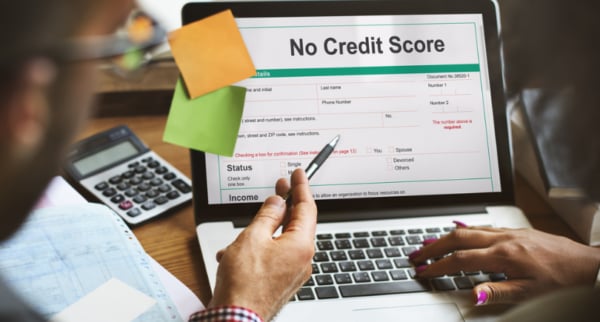
If you have poor credit, fair credit or no credit, you’ll sometimes hear the advice: get a secured credit card.
It is a good suggestion, but it isn’t always the right or best suggestion. After all, just because you have shaky credit, it doesn’t mean you can’t get an unsecured credit card. And, of course, you may be able to get an unsecured credit card but because of your experience in the past with credit cards, actually prefer the idea of a secured credit card.
So, who is a good candidate for a secured credit card – and who should look elsewhere first? It’s always hard to say since everybody’s financial situation is different, but if you’re looking for some guidance, you’ve come to the right place.
First, the let’s talk about the differences between a secured credit card and an unsecured credit card.
Secured vs. unsecured credit cards
An unsecured credit card is the type of credit card most people are familiar with. You apply for a credit card, and if the company issues you one, you can spend money on the credit card up to the credit limit you’re given – and then every month, if all goes as it should, you pay the money back. If it’s a really good credit card, one for people with good or excellent credit scores, it’ll likely offer some sort of rewards in the form of cash back, miles or points, and so you can actually save money every month, if you pay back what you owe on time, that is.
A secured credit card is altogether something else. Secured credit cards require applicants to put down a deposit in order to establish a line of credit for the credit card. Most often, your line of credit, at least initially, will be equal to the amount you put down as a security deposit. You’re basically saying, “Look, since you don’t trust that I’ll pay back loans, I’ll give you the money to use, to loan me money.” It’s simply a refundable deposit so if you fail to make your monthly payments on time, the card issuer has your deposit as collateral.
These cards sometimes offer rewards and other perks, but generally, the best rewards and perks are reserved for unsecured credit cards. The purpose of secured credit cards is to help you build your credit, particularly if you credit is bad (as opposed to being brand new to credit – more on this below). Credit card issuers will usually begin reviewing secured credit card accounts after several months of activity to see if you have a shown track record of spending responsibly and paying bills on time. Over time, responsible use of a secured credit card should build your credit in the same way that an unsecured credit card could, and assuming your account remains in good standing, your security deposit will be fully refunded when you’re ready to graduate to an unsecured credit card.
So, who should apply for secured credit cards – and who should consider applying instead for an unsecured credit card? If you’re considering applying for a secured credit card, you probably fall into a few categories. Let’s break them down.
Who should apply for a secured credit card?
You are a college student with no credit history: Should you apply for a secured credit card?
Probably not. You can apply for a secured credit card, but you should probably consider a student credit card instead.
Current legislation prevents people under the age of 21 from qualifying for a credit card without a co-signer unless they are able to show proof of income to cover debts. With student credit cards, however, there are usually lower expectations for things like income requirements, and therefore, it’ generally a bit easier to be approved for a student credit card (that is, if you’re 18 or older and are actually enrolled in college).
➤ LEARN MORE: How to get a student credit card
Student credit cards are also designed to help people build credit, so similar to secured credit cards, they don’t require a high credit score to apply. However, unlike secured credit cards, which are generally targeted towards people with bad credit (as in, they’ve done something to ruin their credit and are working to rebuild it), student credit cards target students who are new to credit – people who haven’t yet had a chance to build credit. Another difference is that student credit cards often offer rewards and other perks.
➤ SEE MORE: 6 credit cards for students with no credit
That said, if you’re 18 or older, have proof of income (even if it’s just from a part-time job, or money supplied by your parents), and are enrolled in a university, you’re likely better off applying for a student credit card instead of a secured card. The one exception would be if you’re worried about overspending. In that case, a secured credit card, which again, requires you to put down a refundable deposit that equals your initial line of credit, might be the safer choice.
You are an adult with fair credit or possibly no credit history: Should you apply for a secured credit card?
Maybe, but not necessarily. Do you have a job? Credit card companies like to see that a borrower is gainfully employed. If you have a job and your credit score is kind of unimpressive but not bad (think: I don’t know… 630?), there are still unsecured credit card options out there for you.
You’re allowed to apply for any credit card you want, of course, and you may get it if your credit score is right, but the odds are against you if you’re applying for a card outside your credit range. However, there are plenty of credit cards for people with fair credit or who are new to credit. You have to start somewhere. If you make a decent living, and you are confident that you can make monthly payments and pay the card off in full every month, one of these cards could be a good fit for you. These credit cards don’t usually come with many perks, but they can still help you build your credit, and don’t require a security deposit like secured credit cards do.
You are an adult with bad credit. In fact, you’ve made a lot of mistakes with credit cards in the past: Should you apply for a secured credit card?
Yes! Step right up. You are a fine candidate for a secured credit card. Look, we don’t judge. Bad stuff happens, to paraphrase the old saying, and you may be a wonderful, great, trustworthy person who simply had a lousy experience with a credit card or two… or ten. That’s okay. Things do happen.
But this is what’s so great about a secured credit card. Instead of the credit card industry saying, “You made some mistakes, and now you’re finished in this town, and you’ll never spend with us again,” the credit card industry is saying, “We can work this out. We’d just like you to pay a refundable security deposit upfront in case something goes wrong.”
And, of course, it may be that you are feeling credit card shy after some bad experiences with credit cards, and you may like the idea of taking on a secured credit card rather than going with an unsecured credit card. That’s fine, too.
The last word on secured credit cards vs. unsecured credit cards
Most people would rather not have to put down a deposit to use a credit card, and that’s really what usually makes an unsecured credit card a better choice for many people. However, there are instances where secured credit cards make sense, or could be your only option – though that’s not always the case.
So, the next time somebody hears about your shaky credit, or no credit, and they suggest that you get a secured credit card, thank them for the suggestion, but remember, it’s just advice, and as advice goes, it may be a bull’s eye or way off the mark. You have options. Be sure to consider them all in full before making any final decisions.


